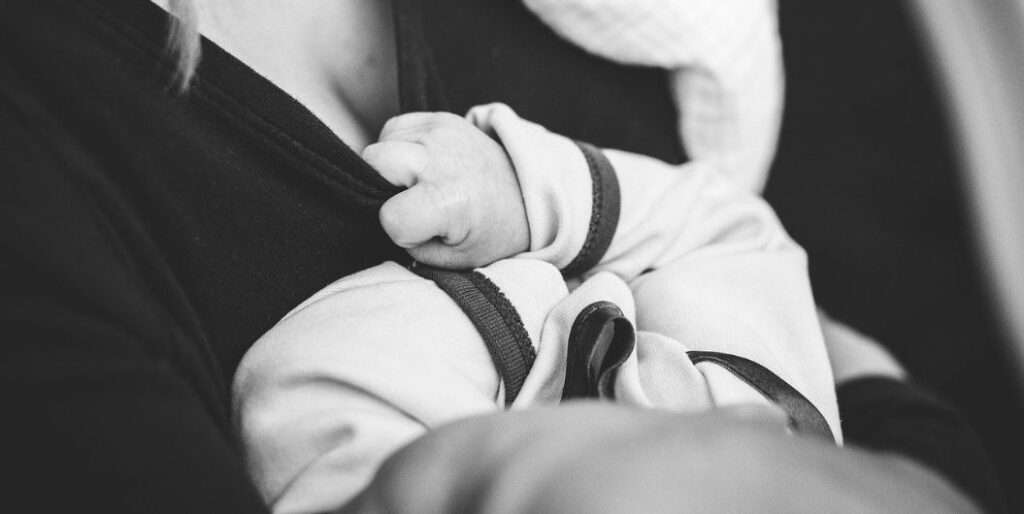Is Breastfeeding During Pregnancy Safe?

Many women choose to space their children close together, and if they’re still breastfeeding, may continue to do so throughout pregnancy. Breastfeeding during pregnancy is considered safe if you’re at low risk for miscarriage and premature labor. While many may believe that tandem nursing is unnecessary and perhaps even detrimental to the unborn baby, mother and nursing child, in reality, women all over the world continue to breastfeed during pregnancy safely.
Getting pregnant while breastfeeding may prove to be a challenge, particularly if your child is less than six months old. Since breastfeeding provides a natural birth control, you may not even be able to get pregnant until the child is either partially weaned or is closer to a year. Once you start getting your periods back, your fertility will follow. You may only be nursing once during the day, or just at night, which will make it easier to get pregnant, and breastfeed during pregnancy.
Once you become pregnant, you may find that some of the early symptoms of pregnancy may make it difficult to continue breastfeeding during pregnancy. Sensitive, tender nipples, fatigue and nausea may simply make it an additional task that you cannot continue. If you can get past the initial discomforts of breastfeeding during pregnancy, there are additional considerations.

Younger infants who are still breastfeeding may need supplemental bottles or foods due to the changes your milk will undergo during pregnancy. The milk will change to colostrum sometime after your fourth month, and while some babies will continue to nurse through these changes, others may not welcome the change in taste. Studies show that nearly 70% of breastfeeding babies will self-wean once their mother’s milk changes during pregnancy. For those stubborn hold-outs, consult your doctor, midwife or lactation consultant for advice on how to keep your milk supply flowing during pregnancy.
Midwives and lactation consultants recommend being mindful of nutritional considerations that apply to both pregnancy and your milk supply. When breastfeeding during pregnancy, you will need adequate calories to support you, the growing fetus and breastfeeding. Additionally, be sure to get enough water — at least the recommended 64 ounces (1.8 kg) a day — if not more, to keep your milk supply up. By itself, pregnancy can take a lot out of you, so adding breastfeeding into the mix means that you’ll need a lot of rest as well.
If you wish to turn to more traditional medical resources, you should contact a specialist. Pediatric nutritionists can provide well-researched support to ensure you’re providing a breastfeeding or unborn child with the most nutritious sustenance possible. In some cases, this will mean tweaking your diet to provide additional nutrients to your unborn child or adding extra foods to support your breastfeeding child. They can also help you to decide when it’s appropriate to move to formula or nutritional supplements.
If you decide to wean once you get pregnant, be sure to consult your pediatrician to ensure that your child continues to get the essential nutrients that need to be replaced after weaning. You should also monitor your infant to ensure that he is continuing to gain weight appropriately, and is getting the proper amount of milk and fluids.
Breastfeeding during pregnancy is a means of not only providing sustenance to your infant, but also a way to stay connected to your child throughout the pregnancy as well as after the new sibling arrives. It may also lessen your child’s anxiety about how he will fit in with a new baby brother or sister in addition providing a common bond between them as well.
